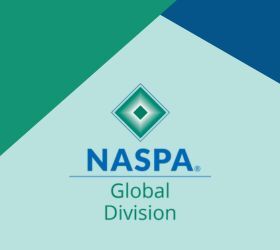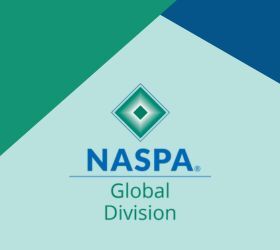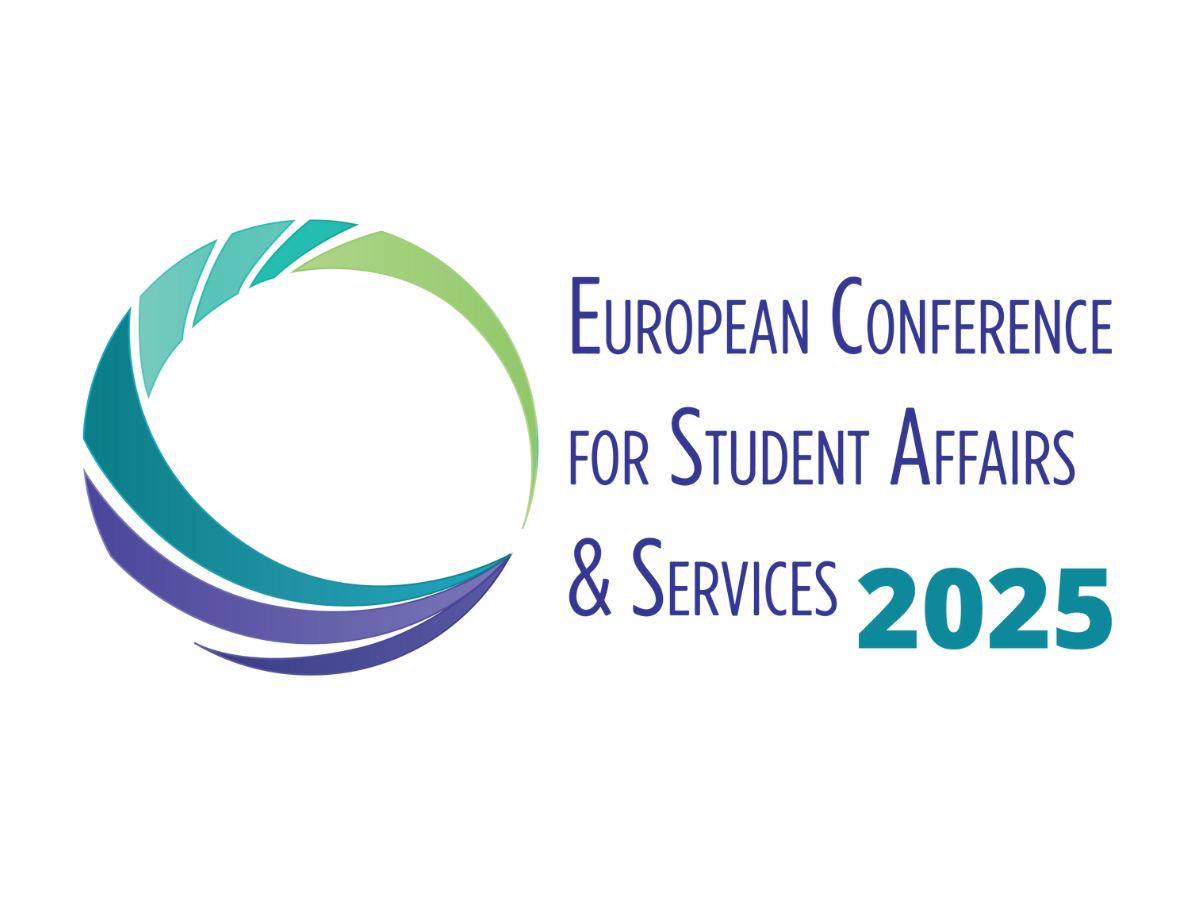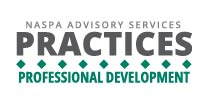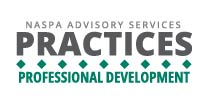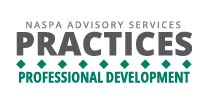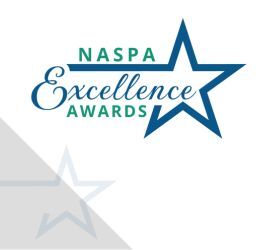
Catalog Advanced Search
-
Contains 1 Component(s) Includes a Live Web Event on 09/11/2025 at 9:00 AM (EDT)
NASPA Global Division presents the "Global Hour", an event inviting colleagues from around the globe to meet and attend an interactive presentation about global changes and shifts in Higher Education and Student Affairs. Attendees will have the chance to explore professional development resources and engagement opportunities with NASPA's global members and receive information about the professional development opportunities.
NASPA Global Division presents the "Global Hour", an event inviting colleagues from around the globe to meet and attend an interactive presentation about global changes and shifts in Higher Education and Student Affairs. Attendees will have the chance to explore professional development resources and engagement opportunities with NASPA's global members and receive information about the professional development opportunities.
The purpose of the NASPA Global Division Award of Distinction is to spotlight best practices and initiatives across the globe that align with NASPA values. The NASPA Global Division strives to recognize significant contributions by individuals and thus support sharing of knowledge and good practices and to generate conversations among student affairs professionals about innovative and effective practices. The NASPA Global Division Award of Distinction further inspires awareness, highlight excellent work being conducted by global professionals, promote collaboration and idea sharing, and serve as a platform to connect professionals around the globe.
Come join us to learn more about the NASPA Global Division awards where you can learn about the application timeline, how to submit a nomination, and the selection process.
The event will be on September 11, 2025 at 9:00am Eastern Time.
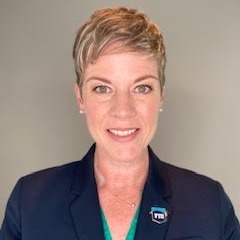
Kerrie Montgomery Orozco (Moderator)
Dr. Kerrie Montgomery Orozco boasts a 25-year career in higher education, specializing in international education, student programming, strategic planning, leadership, and teaching. She's held progressively responsible roles in academic advising, study abroad, and campus life at various institutions. Kerrie is also an accomplished writer, with publications in the peer-reviewed Journal of International Students.
Kerrie has been an active member of NASPA for more than 20 years. She has held a number of volunteer leadership roles and currently serves as Professional Development Chair for the Global Division, Membership & Engagement Chair for the Mid-Level Administrators Steering Committee, and NASPA-FL Conference Chair. She is a past Chair for the International Symposium, and remains active on the planning committee for the 2024 International Symposium.
Kerrie holds a BA in Classical Studies, dual Masters degrees from the University of Florida in Art History and Higher Education, and a PhD in Higher Education from the University of Denver.

Omneya Badr (Moderator)
Senior Academic Advisor
Trinity Washington University
Omneya Badr, an educator and student affairs professional, gained a culturally diverse experience studying, teaching, and working in Bahrain, Qatar, Egypt, UK and the USA. Omneya is a longtime NASPA volunteer. She was the director of MENASA NASPA area 2022-2024, the 2021 and 2022 MENASA Conference chair, member of NASPA's International Symposium Committee and the International Education Knowledge Community (IEKC). She is a frequent presenter at NASPA conferences and her research interests are culturally based Academic Advising, supporting First-generation students, FYE, and cross-cultural communication. She holds an MBA from the University of Bath – UK, a Certificate of Entrepreneurial and Small Business Operation from the Academy of Arts, California - USA, and a BA in Management from the American University in Cairo - Egypt. She recently acquired a Diversity, Equity, and Inclusion in the Workplace Certificate from the University of South Florida - USA. As an educator, Omneya enjoys giving back to the profession and is interested in creating professional development opportunities and encouraging Student Affairs Professionals to research and share knowledge among counterparts around the world.
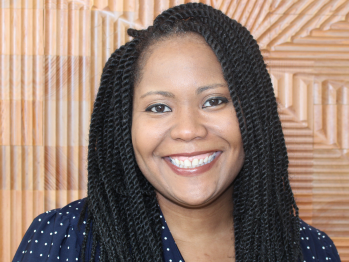
Janelle Rahyns (Moderator)
Senior Director, Global Impact
NASPA - Student Affairs Administrators in Higher Education
Dr. Janelle Rahyns serves as the senior director for global impact at NASPA – Student Affairs Administrators in Higher Education. She supports the association's international initiatives such as NASPA's Global Division, the MENASA Advisory Board, the MENASA NASPA Conference, the Global Summit on Student Affairs and Services, the International Symposium, the International Exchange Program, and assists in the support of the Latin America and the Caribbean Advisory Board. Prior to joining NASPA, Janelle served as the Assistant Dean at Yale-NUS College in Singapore, and the Resident Director at the University of California Los Angeles. Her research interests focus on African American college students, comparative study abroad experiences, international student affairs, and race and ethnicity in study abroad. Janelle holds a Ph.D. in Social Science & Comparative Education with a concentration in International & Comparative Education from the University of California Los Angeles, an M.Ed in Student Personnel in Higher Education and a B.A. in Political Science from the University of Florida.
-
You must log in to register
- Non-member - Free!
- Member - Free!
- More Information
-
You must log in to register
-
Contains 1 Component(s) Includes a Live Web Event on 08/14/2025 at 9:00 AM (EDT)
NASPA Global Division presents the "Global Hour", an event inviting colleagues from around the globe to meet and attend an interactive presentation about global changes and shifts in Higher Education and Student Affairs. Attendees will have the chance to explore professional development resources and engagement opportunities with NASPA's global members and receive information about the professional development opportunities.
NASPA Global Division presents the "Global Hour", an event inviting colleagues from around the globe to meet and attend an interactive presentation about global changes and shifts in Higher Education and Student Affairs. Attendees will have the chance to explore professional development resources and engagement opportunities with NASPA's global members and receive information about the professional development opportunities.
Join us and learn about all of the amazing professional development international opportunities at NASPA.

Kerrie Montgomery Orozco (Moderator)
Dr. Kerrie Montgomery Orozco boasts a 25-year career in higher education, specializing in international education, student programming, strategic planning, leadership, and teaching. She's held progressively responsible roles in academic advising, study abroad, and campus life at various institutions. Kerrie is also an accomplished writer, with publications in the peer-reviewed Journal of International Students.
Kerrie has been an active member of NASPA for more than 20 years. She has held a number of volunteer leadership roles and currently serves as Professional Development Chair for the Global Division, Membership & Engagement Chair for the Mid-Level Administrators Steering Committee, and NASPA-FL Conference Chair. She is a past Chair for the International Symposium, and remains active on the planning committee for the 2024 International Symposium.
Kerrie holds a BA in Classical Studies, dual Masters degrees from the University of Florida in Art History and Higher Education, and a PhD in Higher Education from the University of Denver.

Omneya Badr (Moderator)
Senior Academic Advisor
Trinity Washington University
Omneya Badr, an educator and student affairs professional, gained a culturally diverse experience studying, teaching, and working in Bahrain, Qatar, Egypt, UK and the USA. Omneya is a longtime NASPA volunteer. She was the director of MENASA NASPA area 2022-2024, the 2021 and 2022 MENASA Conference chair, member of NASPA's International Symposium Committee and the International Education Knowledge Community (IEKC). She is a frequent presenter at NASPA conferences and her research interests are culturally based Academic Advising, supporting First-generation students, FYE, and cross-cultural communication. She holds an MBA from the University of Bath – UK, a Certificate of Entrepreneurial and Small Business Operation from the Academy of Arts, California - USA, and a BA in Management from the American University in Cairo - Egypt. She recently acquired a Diversity, Equity, and Inclusion in the Workplace Certificate from the University of South Florida - USA. As an educator, Omneya enjoys giving back to the profession and is interested in creating professional development opportunities and encouraging Student Affairs Professionals to research and share knowledge among counterparts around the world.

Janelle Rahyns (Moderator)
Senior Director, Global Impact
NASPA - Student Affairs Administrators in Higher Education
Dr. Janelle Rahyns serves as the senior director for global impact at NASPA – Student Affairs Administrators in Higher Education. She supports the association's international initiatives such as NASPA's Global Division, the MENASA Advisory Board, the MENASA NASPA Conference, the Global Summit on Student Affairs and Services, the International Symposium, the International Exchange Program, and assists in the support of the Latin America and the Caribbean Advisory Board. Prior to joining NASPA, Janelle served as the Assistant Dean at Yale-NUS College in Singapore, and the Resident Director at the University of California Los Angeles. Her research interests focus on African American college students, comparative study abroad experiences, international student affairs, and race and ethnicity in study abroad. Janelle holds a Ph.D. in Social Science & Comparative Education with a concentration in International & Comparative Education from the University of California Los Angeles, an M.Ed in Student Personnel in Higher Education and a B.A. in Political Science from the University of Florida.
-
You must log in to register
- Non-member - Free!
- Member - Free!
- More Information
-
You must log in to register
-
Contains 1 Component(s) Includes a Live Web Event on 08/12/2025 at 9:00 AM (EDT)
ECSAS will host an information session for the " Navigating Societal Trends and Changes: The Evolving Role of Student Affairs in Higher Education” conference Call for Proposals. The session, held via Zoom, will explain the conference's goals, CFP submission process, and best practices. It will also provide a chance for attendees to ask questions and learn more about the conference.
The goal of the European Conference for Student Affairs and Services is to provide education, training, resources, and support to professionals working in student affairs roles around the world.
This year's focus...
Student Affairs and Services Professionals are essential in shaping the student experience and supporting students' overall well-being and personal development, helping them thrive in all areas of life. Recognizing this, the latest edition of ECSAS will delve into how the role is evolving; examining how emerging needs and societal trends influence professionals’ approaches to student engagement, and how they can continue to grow and adapt in an ever-changing environment.
Come join us in Porto, Portugal this fall and attend our information session to learn more about the Call for Programs process.
The information session is Tuesday August 12, 2025 at 2:00 PM Porto Time.
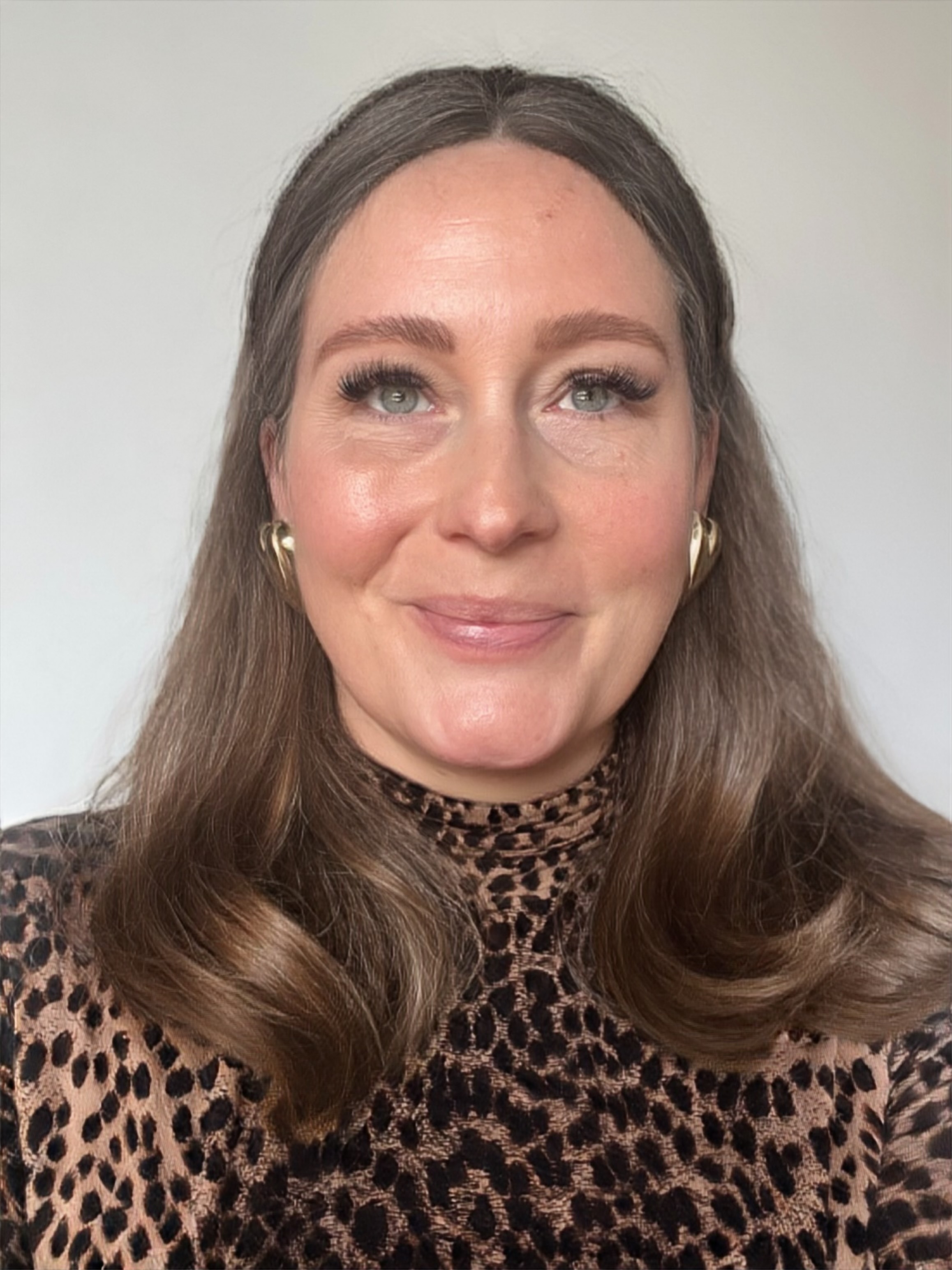
Therese Löfgren
Malmö University
Malmö University
Therese Löfgren has worked in student affairs at Malmö University for nearly 15 years, with a particular focus on student housing and residence life. She has led the strategic development of student housing services and was instrumental in making Malmö University the first higher education institution in Sweden to adopt a residence life model, inspired by international standards. Her work centers on creating inclusive, engaging, and supportive living environments that promote both academic success and personal development.
Therese currently serves on the Board of EucA and is part of the planning group for EucA’s annual Student Leadership Conference. She has presented twice at EucA’s annual conference, and regularly shares her expertise within Sweden through the national network Studentbostadsföretagen.
Her team has received national recognition for its innovative and student-centered approach, earning the award for “Best University Housing Provider” in Sweden five times. She is passionate about student engagement, international collaboration, and the potential of housing as a platform for community building and leadership development.

Janelle Rahyns (Moderator)
Senior Director, Global Impact
NASPA - Student Affairs Administrators in Higher Education
Dr. Janelle Rahyns serves as the senior director for global impact at NASPA – Student Affairs Administrators in Higher Education. She supports the association's international initiatives such as NASPA's Global Division, the MENASA Advisory Board, the MENASA NASPA Conference, the Global Summit on Student Affairs and Services, the International Symposium, the International Exchange Program, and assists in the support of the Latin America and the Caribbean Advisory Board. Prior to joining NASPA, Janelle served as the Assistant Dean at Yale-NUS College in Singapore, and the Resident Director at the University of California Los Angeles. Her research interests focus on African American college students, comparative study abroad experiences, international student affairs, and race and ethnicity in study abroad. Janelle holds a Ph.D. in Social Science & Comparative Education with a concentration in International & Comparative Education from the University of California Los Angeles, an M.Ed in Student Personnel in Higher Education and a B.A. in Political Science from the University of Florida.
-
You must log in to register
- Non-member - Free!
- Member - Free!
- More Information
-
You must log in to register
-
Contains 4 Component(s) Includes a Live Web Event on 07/17/2025 at 1:00 PM (EDT)
This course equips student affairs professionals with a strategic understanding of artificial intelligence (AI) and its practical applications in higher education. Participants will explore the opportunities and challenges AI presents while gaining hands-on experience with key tools to streamline workflows and enhance student engagement. The course emphasizes both practical implementation and ethical considerations, ensuring participants can make informed decisions about AI use. By the end, learners will be prepared to integrate AI strategies that align with institutional goals and student needs.
July 14-August 15, 2025
Artificial intelligence is rapidly transforming higher education, and student affairs professionals are at the forefront of this evolution. This 5-week online course introduces foundational AI concepts and provides a strategic framework for thoughtfully integrating AI into student affairs practice. Using Ethan Mollick’s Co-Intelligence as a guiding text, participants will explore ethical considerations, identify AI applications that enhance student support services, and gain hands-on experience with practical tools such as generative AI platforms, chatbots, and data-driven communication tools.
The course is designed to balance strategy with practice, giving participants opportunities to engage in real-world exercises, discussions, and case studies that highlight both the promise and pitfalls of AI. Special attention will be given to topics such as bias, privacy, and institutional policy, helping professionals anticipate challenges and confidently navigate them. By the end of the course, attendees will have built a working knowledge of AI’s potential, along with a tailored action plan for applying AI tools and strategies to better serve their students and meet evolving institutional goals.
Learning Outcomes
- Describe key AI concepts and explain their relevance to student affairs practice.
- Recognize ethical considerations, including bias and privacy, and understand institutional policies that guide AI use.
- Assess and experiment with AI tools that support student engagement, communication, and administrative efficiency.
- Develop a practical action plan for integrating AI tools and strategies into your own student affairs work.
Course Prices
Member: $449
Non-member: $649
Live Session
The five 60-minute live sessions will be held every Thursday from 1:00- 2:00 p.m. ET.
They are scheduled for the following dates:
July 17, 2025
July 24, 2025
July 31, 2025
August 7, 2025
August 14, 2025
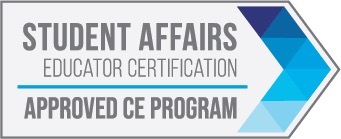
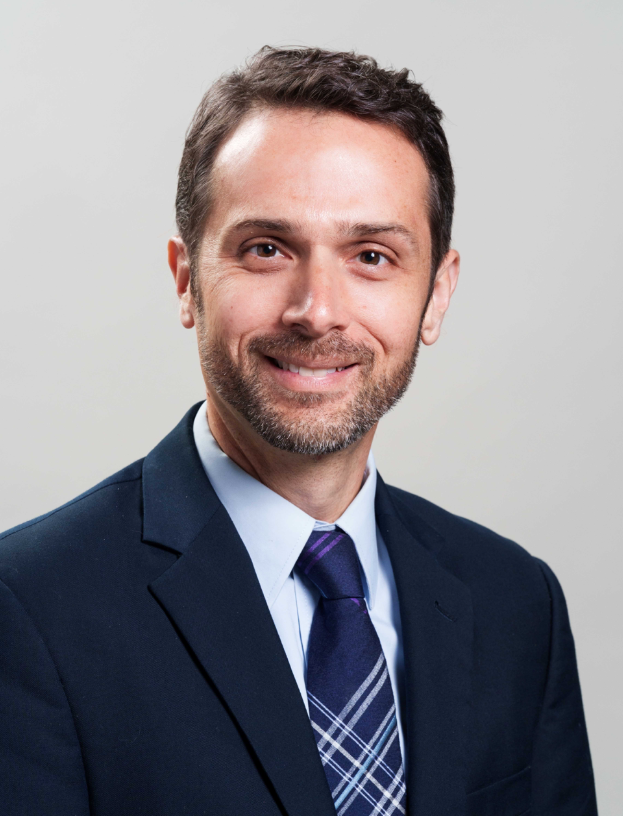
Michael Butcher, Ed.D.
Assistant Vice President for Student Affairs and Dean of Students
College of Coastal Georgia
Dr. Michael Butcher is the Assistant Vice President for Student Affairs and Dean of Students at the College of Coastal Georgia (CCGA), as well as the Founder and President of the Center for Artificial Intelligence. With nearly two decades of experience in higher education, Dr. Butcher is a national leader in leveraging artificial intelligence (AI) to drive organizational and educational innovation. His expertise lies in integrating advanced technologies to enhance efficiency, communication, engagement, and assessment across various industries.
Dr. Butcher holds a Bachelor’s in Information Technology, a Master’s in Public Administration, a Doctorate in Educational Leadership, and a Graduate Certificate in Artificial Intelligence Business Innovation. This interdisciplinary academic background provides a solid foundation for his deep understanding of AI and its practical applications in higher education.
Nationally recognized for his thought leadership, Dr. Butcher has delivered keynote addresses at EDUCAUSE, the Georgia Council of Human Resources (GCHR), and the Southern Association of Colleges and Employers (SoACE). He has also presented on AI ethics, accessibility, and its transformative impact on higher education at regional and national conferences, including NASPA. Most recently, he developed CCGA’s inaugural course, “Artificial Intelligence and Business Innovation,” preparing students for success in a rapidly evolving technological landscape.
Week 1: Introduction to AI and Its Impact on Higher Education
- Overview of AI concepts and trends; guided reading of Mollick’s foundational chapters.
- Reflection: Where is AI already showing up on your campus, and what questions does it raise?
Week 2: Ethics, Bias, and Policy in AI Use
- Deep dive into ethical considerations, bias, privacy concerns, and institutional responsibilities.
- Case study: Real-world scenarios of AI successes and challenges in student affairs.
Week 3: Exploring AI Tools for Student Affairs
- Hands-on demos of key tools: Copilot, ChatGPT, chatbots, early alert systems, scheduling assistants.
- Workshop: Crafting and testing AI prompt engineering for practical tasks.
Week 4: AI for Communication, Engagement, and Support
- Strategies for using AI to personalize outreach, support services, and enhance engagement.
- Assignment: Develop a draft communication or engagement plan using AI tools.
Week 5: Building Your AI Action Plan
- Synthesis of course learnings: strategy, tools, ethical considerations, and next steps.
- Present and peer-review a tailored AI integration plan for your department or institution.
-
You must log in to register
- Non-member - $649
- Member - $449
- More Information
-
Contains 8 Product(s)
State and federal legislative and policy changes can significantly impact the work of student affairs professionals. This Public Policy hub is designed to serve as a tool for NASPA members to better understand policy and regulatory changes, and potential implications of proposed legislation that impact the student affairs profession and broader higher education field. This resource is only available to current NASPA individual members. If you have questions about your membership status or would like to join or renew, please contact membership@naspa.org
The Public Policy resource hub consists of a compilation of policy research, coalition work, and resources from NASPA, other associations, non-profit organizations, and think tanks with expertise in various areas of higher education. Based on input from staff, organizational partners, and members, NASPA has curated this centralized resource to include policy trackers, articles, fact sheets, legislative summaries, and informational videos that outline state and federal legislative and policy changes for student affairs professionals.
This resource is only available to current NASPA individual members. If you have questions about your membership status or would like to join or renew, please contact membership@naspa.org
NASPA staff wants to hear from members about the policy areas that would be helpful for us to follow and report on. We are also interested in hearing from members if there are additional resources that would be helpful in their work.
-
You must log in to register
- Member - Free!
- More Information
-
You must log in to register
-
Contains 4 Component(s), Includes Credits
At WSU Tri-Cities, approximately half of the student body identifies as BIPOC, are first-generation students, and pay no out-of-pocket tuition. Motivated to provide a diverse community with transformational experiences that address access, inclusion, and equity, the presenters will share how Counseling & Wellness, Multicultural Center, and Career Center utilized on-campus employment as a vehicle for delivering evidence-based, high-impact programs, and the intersectional approach applied to promote personal growth, identity exploration, professional development, and holistic wellbeing. In addition, we will discuss the second year of managing the peer education programs, a year after their inaugural campus launch.
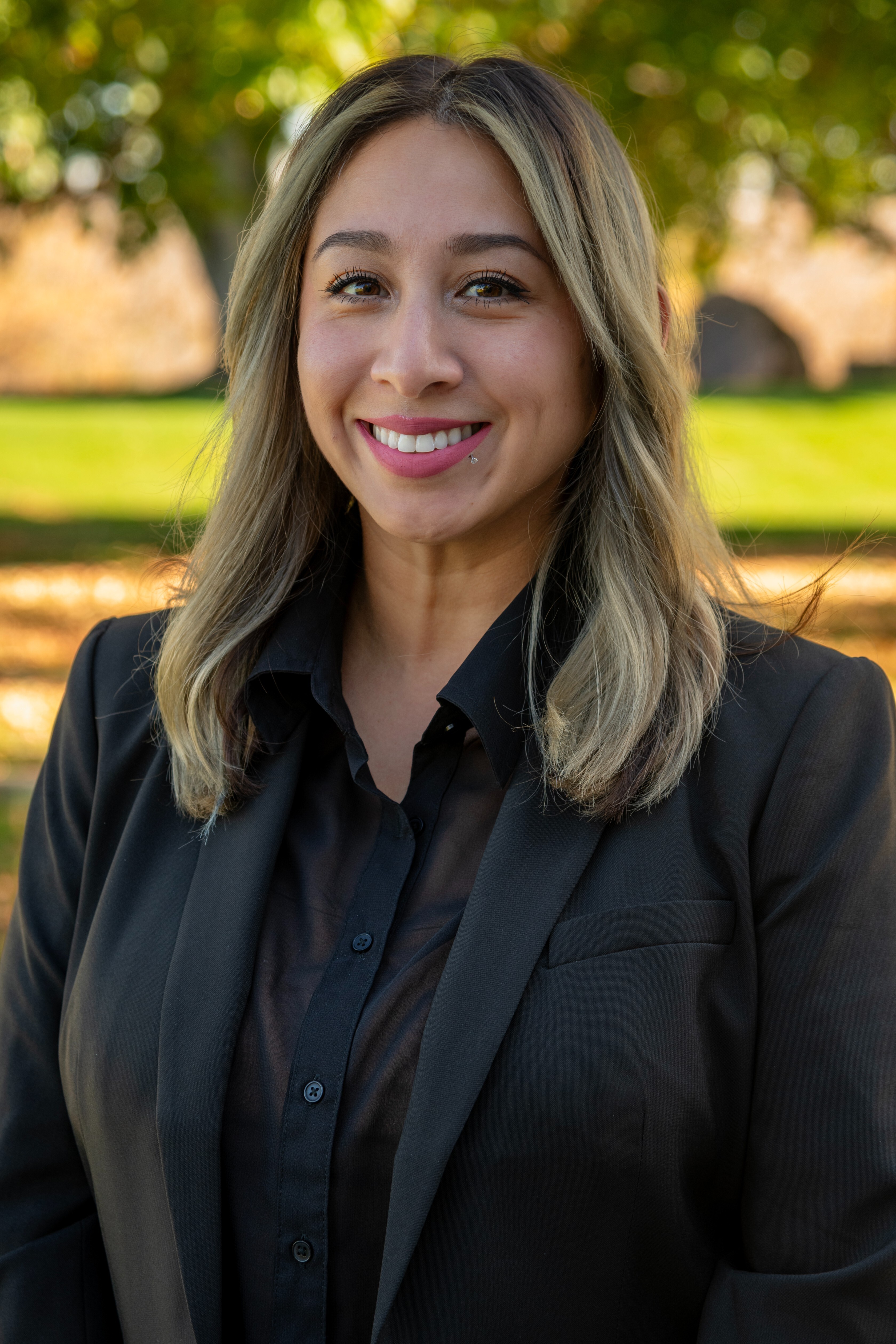
Sylvia Rangel van Breda Vriesman, M.A. LMFT
Assistant Director of Student Services / Student Counselor
Washington State University Tri-Cities
Sylvia Rangel van Breda Vriesman, M.A. LMFT, is a licensed Marriage, Couple, and Family therapist, who specializes in the treatment of co-occurring disorders, who serves as the Assistant Director of Student Services / Student Counselor at Washington State University Tri-Cities since July 2020. She is passionate about social justice, advocating for student mental health, peer education, mindfulness, and using the Cultural Context Model in her clinical work. When not at work, she loves spending time at her house, gardening, cooking, and enjoying spa/movie nights with her family. Her goal is to continue working with the collegiate population and pursue a doctorate in Psychology.
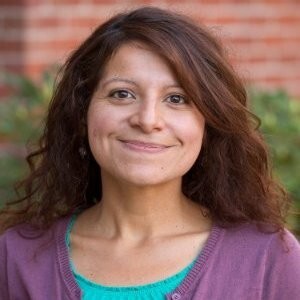
Laura Sanchez
Director of Student Services / Deputy Title IX Coordinator
Washington State University Tri-Cities
Laura Sanchez has dedicated over 20 years to the higher education and non-profit sectors in central and eastern Washington State. As a proud first-gen Chicana, Laura maintains a steadfast commitment to equity, inclusion, and social justice within her work that includes roles within admissions, career services, alumni relations and diversity and inclusion at both state public and private liberal arts institutions. Currently, Laura serves as the Director of Student Services at Washington State University Tri-Cities, where she oversees multiple departments critical to student success.
In this webinar, the presenters will delve into the methodically crafted evidence-based program design process deeply rooted in mentoring research, anti-deficit inquiry, and the recognition of cultural wealth. Our journey will explore the preparation and launch of four student peer programs led by Counseling and Wellness, Mobilizing Opportunities for Student Advocacy, Inclusion and Culture (MOSAIC) Center, and Career Center and go into a deep dive into two peer programs as case studies that expand over two years.
Integrated into the programs, Cougs Reaching Cougs, Peer Health Promotion, EmPOWERment Fellows, and Peer Career Coaches, the respective student supervisors serve as mentors to guide students individually, and as a team, and provide ongoing training along with opportunities to apply learned techniques and tools that reinforce skill development through immediate and continual practice. The mentoring relationship allows for authentic listening and sharing that provides insight that supervisors can incorporate through activities and dialogues on topics such as identity, advocacy, mental, emotional, and physical wellness, navigating college, and career exploration.
Shared training and professional development opportunities are included for all student employees in these offices, while tailored components can be added to the experiential learning that is outlined as part of the program design. These three offices work together to create an intersectional approach to student development by focusing on personal growth, identity exploration, professional development, and holistic well-being. Using the pedagogical approach of “meeting students where they are”, we maintain a judgment-free environment where aspirations for the program needs are met, along with the personal, professional, and academic goals of the student employees. As we launched three new peer education programs at the same time, we provide and receive systemic support and advice to continuously improve and grow our programs, preventing burnout as student affairs professionals.
Community Cultural Wealth (Yosso, 2005)
Stereotype Threat (Steele, 1995)
NASPA’s Certified Peer Educator Training, The Cultural Context Model (Dr. Rhea Almeida)
Eight Dimensions of Wellness (SAMSHA)
MENTOR/National Mentoring Partnership (2005)
The Case for a Conceptual Base for Minority Mentoring Programs (Haring, M. J.,1999)Learning Outcomes
1. Understand the process for crafting an intentional program design that includes (1) development through a social justice lens, (2) an anti-deficit framework, and (3) a research-based mentoring approach
2. Gain awareness of the considerations for launching and managing peer-based programs that includes best practices for capturing data and analysis for program evaluation and improvement.
NASPA has been approved by the Higher Education Consortium for Student Affairs Certification to provide CE credit for Certified Student Affairs Educators (CSAEd). NASPA is solely responsible for all aspects of this program.
Participants who complete the course will be eligible for Continuing Education (CE) credits in the Core Student Affairs Educator Certification (CSAEd).
Guidelines for earning CE credit: 1 CE is awarded for attending this live session OR on-demand for ONE category of Continuing Education. You can not receive more than 1 credit hour total.
No partial credit will be rewarded.
To receive CSAEd credit, attendees must complete the Feedback Survey in the online event offering the credit. Once the survey is completed, your Certificate will be available in the event modules for you to download at your convenience.
-
You must log in to register
- Non-member - $179
- Member - $79
- More Information
-
You must log in to register
-
Contains 9 Product(s)
Gain access to all of the webinars in the 2025 PRACTICES Professional Development Series at a discounted rate and earn up to 9 CE credits! Click on the package title to view all of the webinars included.
The NASPA Advisory Services PRACTICES Professional Development Series offers nine 60-minute webinars focused on topics spanning across our signature framework, PRACTICES. The framework focuses on student affairs and services’ policies, resources, alignment and partnerships with academic affairs, compliance, technology, inclusion, community, evidence-based practices, and student success efforts. This webinar series is a flexible, effective way to provide a comprehensive professional development series to your staff.
PRICE
Members: $349
Non-members $599
-
You must log in to register
- Non-member - $599
- Member - $349
- More Information
-
You must log in to register
-
Contains 5 Component(s), Includes Credits
The presentation covers strategic planning frameworks, research, and best practices. Participants will have an opportunity to get involved through a strategic planning exercise followed by a discussion of how to apply the frameworks at their institution.
As a concept, strategic planning promises opportunities for an organization to become more successful by assessing the future, setting goals, and devising ways to bring about those goals (Dooris, Kelley, & Trainer, 2004). This intentionality is critical in all types of functional areas and at all levels of organizations. However, in practice, strategic planning is often confusing given the number of models, methods, ideas, tools, and procedures. Confusion can also set in when professionals try to adapt a strategic planning process from a business centered field to student affairs. These challenges and countless external pressures make it difficult to successfully develop and implement a strategic plan in a unit, and/or for a division.
Given these challenges, this presentation's intent is to initiate a conversation about a strategic planning model that works for student affairs. Specifically, the primary goal of this session is to develop, through discussion and application, the skills needed to successfully begin a strategic plan in an individual unit and/or for a student affairs division. The program has three additional goals; (1) develop an understanding of how to use assessment findings in a strategic plan; (2) evaluate frameworks and determine which framework is most applicable to their organization; and (3) the consideration of psychology and behavior that supports the successful development of a strategic plan. Covering each of these goals is critical given the growing need for strategic thinking and planning for all professionals.
Dooris, M. J., Kelley, J. M. and Trainer, J. F. (2004). Strategic planning in higher education. New Directions for Institutional Research, 2004, 5-11. https://doi.org/10.1002/ir.115
Learning Outcomes
1. Participants will understand strategic planning in the student affairs assessment context.
2. Participants will learn about different strategic planning frameworks.
3. Participants will learn how to apply strategic planning frameworks in their own workplace.
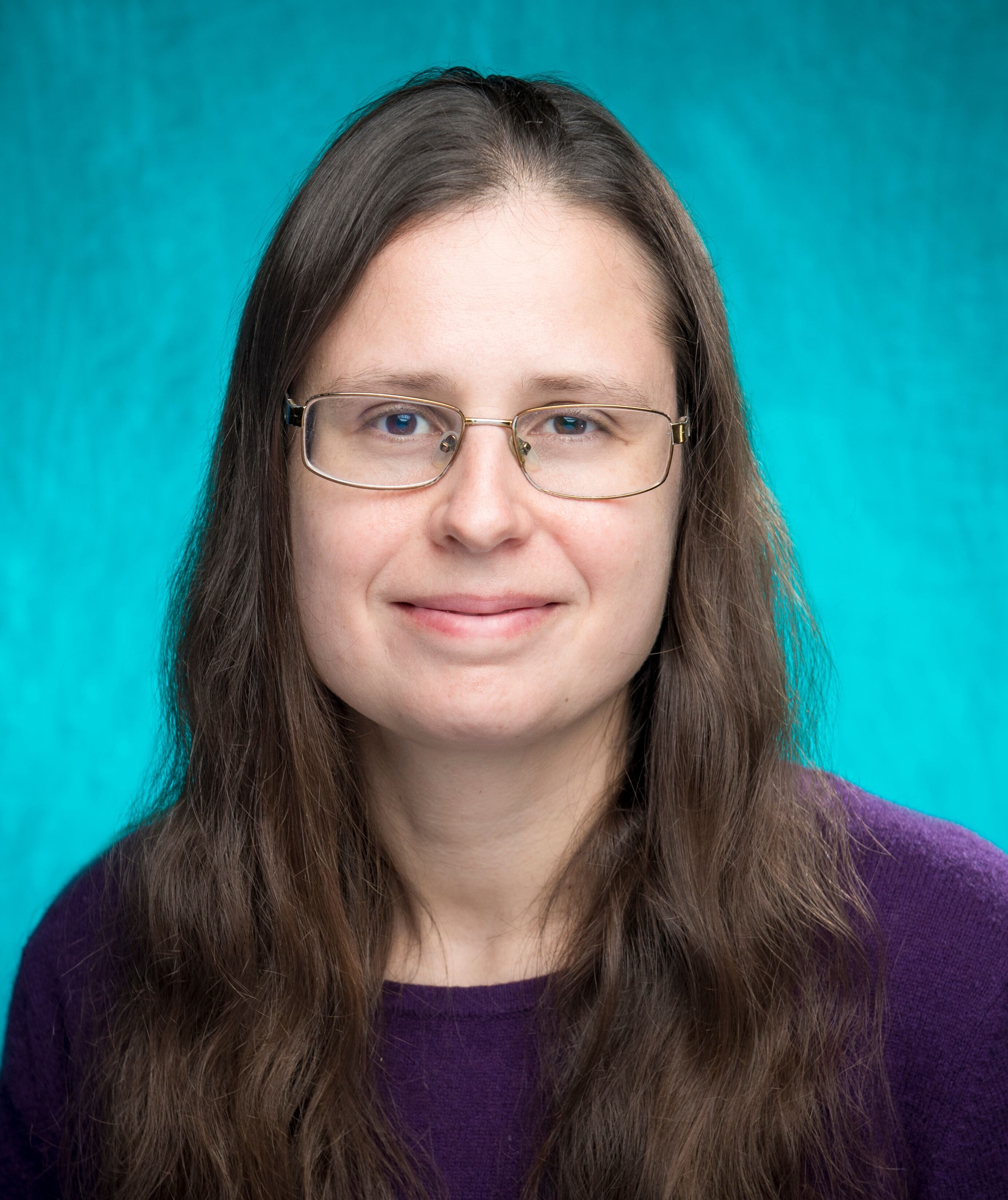
Ania Peczalska
Director of Student Affairs Assessment, Research, and Planning
University of North Carolina Wilmington
Ania Peczalska has been involved in student affairs strategic planning for over three years with expertise in developing, tracking, and/or revising strategic plans and priorities at the university, divisional, and/or unit level. She worked for over ten years at Indiana University Bloomington in a variety of student-facing and administrative positions where she obtained an in-depth understanding of student affairs assessment and postsecondary student experience. Ania obtained her undergraduate degree at Saint Olaf College followed by a Master of Library Science, a Master of Arts in Folklore and Ethnomusicology, and a Ph.D. in Higher Education from Indiana University.
Ania also has a strong background in both quantitative and qualitative research with research centered around student success, assessment, and institutional support for students. Her publications include articles within the peer-reviewed journal Innovative Higher Education and the NASPA Leadership Exchange magazine. Ania additionally teaches a graduate assessment course at University of North Carolina Wilmington, holds a leadership position in the NASPA Assessment, Evaluation, and Research Knowledge Community, and regularly presents her research and assessment best practices at national conferences.
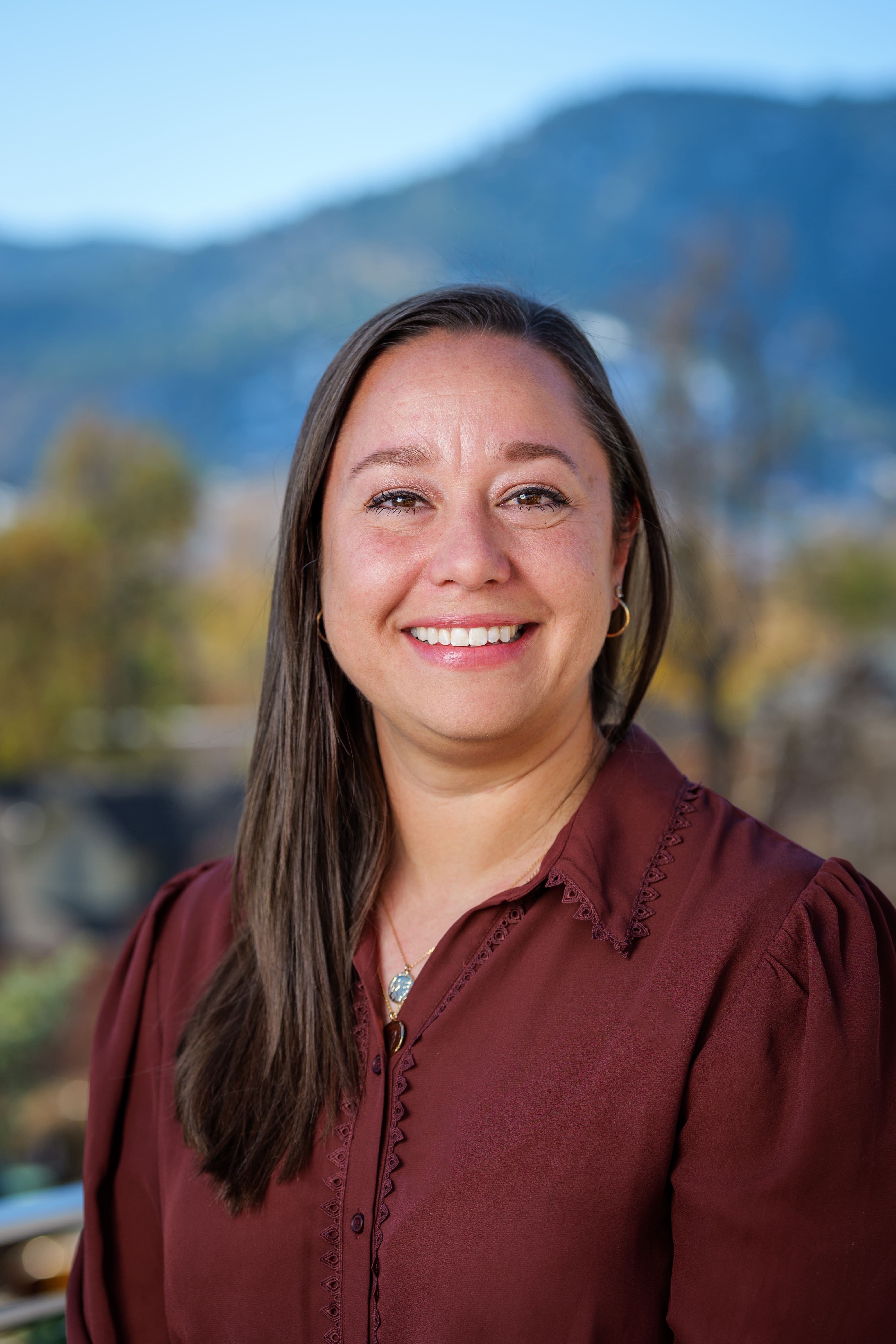
Kimberly Kruchen-Spaulding
Associate Director of Operational Excellence
University of Colorado Boulder
Kimberly Kruchen-Spaulding is an accomplished leader in supporting strategic initiatives, currently serving as the associate director in the office of the executive vice chancellor at the University of Colorado Boulder. In this pivotal role, Kim provides high-level strategic support to ensure the successful implementation of campus-wide initiatives. She excels in managing complex projects by formulating and executing long-term goals, optimizing organizational capabilities, and driving sustained success across these initiatives. Kim’s expertise spans change management, data-informed decision-making, and organizational effectiveness. Kim began her career at CU Boulder as a student activities coordinator, where she adapted programs that impact student success. At the University of Virginia, she earned her master's degree, conducted research, and contributed as an intern for the Council for the Advancement of Standards (CAS). Most recently, Kim led the Division of Student Affairs' efforts in assessment, research, and data analytics as its director, leveraging data-driven insights to enhance the student experience and organizational performance. With research interests in student development, mattering, and organizational psychology, Kim is an active volunteer in the field and currently serves as co-chair of the NASPA Assessment, Evaluation, and Research Knowledge Community.
NASPA has been approved by the Higher Education Consortium for Student Affairs Certification to provide CE credit for Certified Student Affairs Educators (CSAEd). NASPA is solely responsible for all aspects of this program.
Participants who complete the course will be eligible for Continuing Education (CE) credits in the Core Student Affairs Educator Certification (CSAEd).
Guidelines for earning CE credit: 1 CE is awarded for attending this live session OR on-demand for ONE category of Continuing Education. You can not receive more than 1 credit hour total.
No partial credit will be rewarded.
To receive CSAEd credit, attendees must complete the Feedback Survey in the online event offering the credit. Once the survey is completed, your Certificate will be available in the event modules for you to download at your convenience.
-
You must log in to register
- Non-member - $179
- Member - $79
- More Information
-
You must log in to register
-
Contains 1 Component(s)
NASPA Global Division presents a "Global Perspective", an event inviting colleagues from around the globe to meet and attend an interactive presentation about global perspectives and viewpoints in Higher Education and Student Affairs from a specific geographic outlook.
NASPA Global Division presents a "Global Perspective", an event inviting colleagues from around the globe to meet and attend an interactive presentation about global perspectives and viewpoints in Higher Education and Student Affairs from a specific geographic outlook. Discover key insights and innovations in Student Affairs through a Philippine lens in this one-hour panel discussion featuring student affairs leaders from both local and international institutions.
Leading the panel is Dr. Anna Gonzalez, a proud Filipina and Vice Chancellor for Student Affairs at Washington University in St. Louis, with over 30 years of experience in U.S. higher education and a former President of NASPA (National Association of Student Personnel Administrators). Dr. Gonzalez will share her unique perspective on global best practices and how they can inform and inspire student affairs work in the Philippines.
She will be joined by Dr. Renelyn Salcedo (President, PAPSAS), Dr. Irene Bustos (Dean of Student Affairs, Central Luzon State U), and Jaymee Pantaleon (Dean of Student Affairs, De LaSalle U, Manila), who will offer local insights on current challenges, successful strategies, and the evolving landscape of student services in the country.
Whether you're a student affairs practitioner, educator, or higher education leader, this session offers valuable takeaways to enrich your work and impact

Anna Gonzalez
Vice Chancellor for Student Affairs
Washington University, St. Louis
Dr. Anna Gonzalez or “Dr. G” as she is known to students, is a nationally recognized student affairs leader with over 30 years of experience in higher education. As the Vice Chancellor for Student Affairs at WashU, Dr. Gonzalez’s primary focus is to provide leadership to the university’s renowned Division of Student Affairs, engage with students to recognize their needs and enhance their experiences, spearhead transformative giving opportunities with University Advancement, and implement innovative strategies to ensure WashU is a leader in providing a 21st century higher education experience. Within her diverse portfolio, Gonzalez oversees WashU’s Center for Career Engagement, health and well-being, Residential Life, the Center for Diversity & Inclusion, Athletics & Recreation, Campus Life, and Bear Beginnings — WashU’s orientation program for first-year students.
Dr. Gonzalez serves on several regional and national boards, including NASPA — Student Affairs Administrators in Higher Education — where she is currently serving as the immediate past board chair. She has delivered national keynotes and is a published author. Her research interests are focused on higher education policy and governance, first-generation students, and higher education finance. Her scholarly publications include the book “Transformational Encounters: Shaping Diverse College and University Leaders.”
Gonzalez is a graduate of Loyola Marymount University with a bachelor’s degree in international business. She earned her master’s and doctoral degrees, both in education, from Claremont Graduate University. Dr. Gonzalez enjoys traveling, getting to know the local food scene, gardening, and spending lots of time with her family and her dog — Yoshi.

Irene Bustos
Dean of Student Affairs
Central Luzon State University, Nueva Ecija
Dr. Irene G. Bustos has been in the Guidance and Counseling profession for more than three decades now. She started as a School Counselor in the College of the Holy Spirit of Tarlac in 1984, then moved to Central Luzon State University in 1987 until the present time.
Irene earned her Bachelor of Science in Psychology degree from St. Louis University in Baguio City in 1983. She finished Master of Science in Guidance and Counseling at De La Salle University where she was a faculty scholar under the CLSU Faculty Development Program. In 2013, also under the CLSU Faculty Development Program, she earned her degree, Doctor of Philosophy in Education (Guidance) from the University of the Philippines-Diliman where she likewise benefitted from Presidential Scholarship owing it to her University Scholar status.
Irene has presented papers in some conferences, locally and internationally. She is the prime mover of the Mentoring Program of CLSU. She is part of the Counselor Education department of the College of Education (MSGC program) and the Distance, Open and Transnational University. Likewise, she handles undergraduate subjects in the Psychology, Management, and Secondary Education departments
Irene is also a Volunteer Probation Aide in the Nueva Ecija Parole and Probation Office of the Department of Justice and an active Convenor of the USAD Project of the Science City of Muñoz PNP, handling a special program for drug reformists.
Presently, Irene holds different positions such as, Dean of the Office of Student Affairs of Central Luzon State University, Guidance Counselor, HRD and Testing Facilitator and OSA-Gender and Development Focal Person.
As an advocate of Mental Health, Irene is an active facilitator of seminars/training and webinars on different soft skills and competency development which includes Self-Care, Stress and Self-Management, Wellness, Communication, and the like.

Jaymee Abigail Pantaleon
Dean of Student Affairs
De La Salle University, Manila
Dr. Jaymee Abigail K. Pantaleon is the Dean of Student Affairs at De La Salle University (DLSU) Manila. She is also an Assistant Professor in the Department of Psychology. She earned her B.S. in Psychology at St. Scholastica’s College and her M.A. in Counseling (with distinction) at DLSU-Manila. She has completed her Ph.D. in Counseling Psychology at the same university. Dr. Pantaleon is a licensed teacher and counselor. Her research interests include mental health, help-seeking behavior, and positive psychology. She is currently the President of the Educational Counselors and Psychologists of the Asia Pacific (ECPA) and a member of both the Philippine Guidance and Counseling Association (PGCA) and the Psychological Association of the Philippines (PAP).
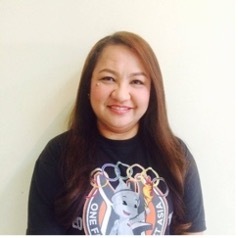
Renelyn B. Salcedo, EdD, RGC, LPT, CSASS
Senior Vice President, Student and Alumni Services
FAITH (First Asia Institute of Technology and Humanities) Colleges
Renelyn Belen Salcedo is the Senior Vice President for Student and Alumni Services of FAITH COLLEGES. She is a Registered Guidance Counselor, Licensed Professional Teacher and a Certified Student Affairs and Services Specialist. Currently, she is the National President of the Philippine Association of Practitioners of Student Affairs and Services, PAPSAS, INC (April 2022 – present) President of the Philippine Guidance and Counseling Association- Batangas Chapter (2021-2024), Vice President and Founding Officer of the Universities, Colleges and Schools Admission Officers Association (UCSAA, 2016 to present), Board Member of the Integrated Professional Counselors Association of the Philippines, IPCAP (2021 to present) and Regional President of the Philippine Association of Practitioners of Student Affairs and Services, PAPSAS REGION IV (2013 to present). Formerly, she was the National Vice President of the Philippine Association of Practitioners of Student Affairs and Services, PAPSAS, INC (May 2017 to April 2022), Vice President of the Peer Organization Advisers of the Philippines, under the umbrella of the Philippine Guidance and Counseling Association or PGCA (2018 to 2022). She has been a Resource Speaker in regional and national conferences and conventions and was several times invited to facilitate a seminar-workshop and training for teachers, guidance counselors, student leaders, faculty advisers and parents.
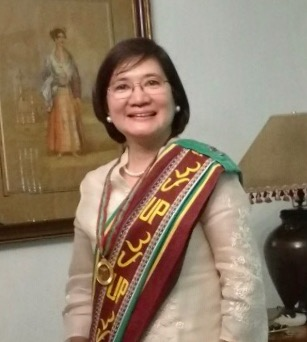
Cecilia M Resurreccion (Moderator)
Executive Director, Center for Student Affairs
University of Asia and the Pacific
Cecilia “Ces” M. Resurreccion, Phd, RGC, RPsy, is the Center for Student Affairs Executive Director, University of Asia and the Pacific (UA&P). She is a registered Guidance Counselor and a licensed Psychologist. She was the former Vice Dean of the School of Education at UA&P. She has been a mentor, guidance counselor, and psychologist for many years. She has conducted numerous seminars, training, and academic lectures on resilience, mentoring, mental health, youth development, student well-being, and values development.
She has finished her PhD in Guidance Education at the University of the Philippines and her MA in Counseling Psychology at the Ateneo de Manila University, Loyola Quezon City. She took another MA in Values Education at the University of Asia and the Pacific. She is a member of the American Psychological Association, the American Counseling Association, the Psychological Association of the Philippines, and the Philippine Guidance and Counseling Association. She served as the local chapter president of Alpha Sigma Omega of Chi Sigma Iota Counseling Academic and Professional Honor Society International.

Omneya Badr (Moderator)
Senior Academic Advisor
Trinity Washington University
Omneya Badr, an educator and student affairs professional, gained a culturally diverse experience studying, teaching, and working in Bahrain, Qatar, Egypt, UK and the USA. Omneya is a longtime NASPA volunteer. She was the director of MENASA NASPA area 2022-2024, the 2021 and 2022 MENASA Conference chair, member of NASPA's International Symposium Committee and the International Education Knowledge Community (IEKC). She is a frequent presenter at NASPA conferences and her research interests are culturally based Academic Advising, supporting First-generation students, FYE, and cross-cultural communication. She holds an MBA from the University of Bath – UK, a Certificate of Entrepreneurial and Small Business Operation from the Academy of Arts, California - USA, and a BA in Management from the American University in Cairo - Egypt. She recently acquired a Diversity, Equity, and Inclusion in the Workplace Certificate from the University of South Florida - USA. As an educator, Omneya enjoys giving back to the profession and is interested in creating professional development opportunities and encouraging Student Affairs Professionals to research and share knowledge among counterparts around the world.
-
You must log in to register
- Non-member - Free!
- Member - Free!
- More Information
-
You must log in to register
-
Contains 12 Component(s)
We are honored to highlight some of the 2025 program winners with these exceptional informational webinars, exclusively available to all NASPA members at no cost! Each webinar discusses the institution’s award-winning program, how and why it was created, and the significant impact it is making on campus.
The NASPA Excellence Awards recognize the contributions of members who are transforming higher education through outstanding programs, innovative services, and effective administration. These awards cover twelve categories critical to the success of students:
- Career Development Center's Equitable and Inclusive Hiring Initiative
- Change Begins with Us: Interpersonal Violence Prevention Training for Incoming Students
- Effective Hazing and Alcohol Overdose Education
- Executive in Residence Program
- Game Day Ready Initiative
- Home@Mizzou
- Investing in the Long Term Housing Security of Low Income Students: The Need Based Rent Subsidy
- Listening Labs
- Service Scholar Program
- The Adams Leadership Institute
- Weekly Retention Meetings
- WKU CARES-Coaching for Academic Readiness Excellence and Success
Programs selected for recognition in each category receive either a Gold, Silver, or Bronze designation. Gold recipients are considered in a second round for three grand-level awards.
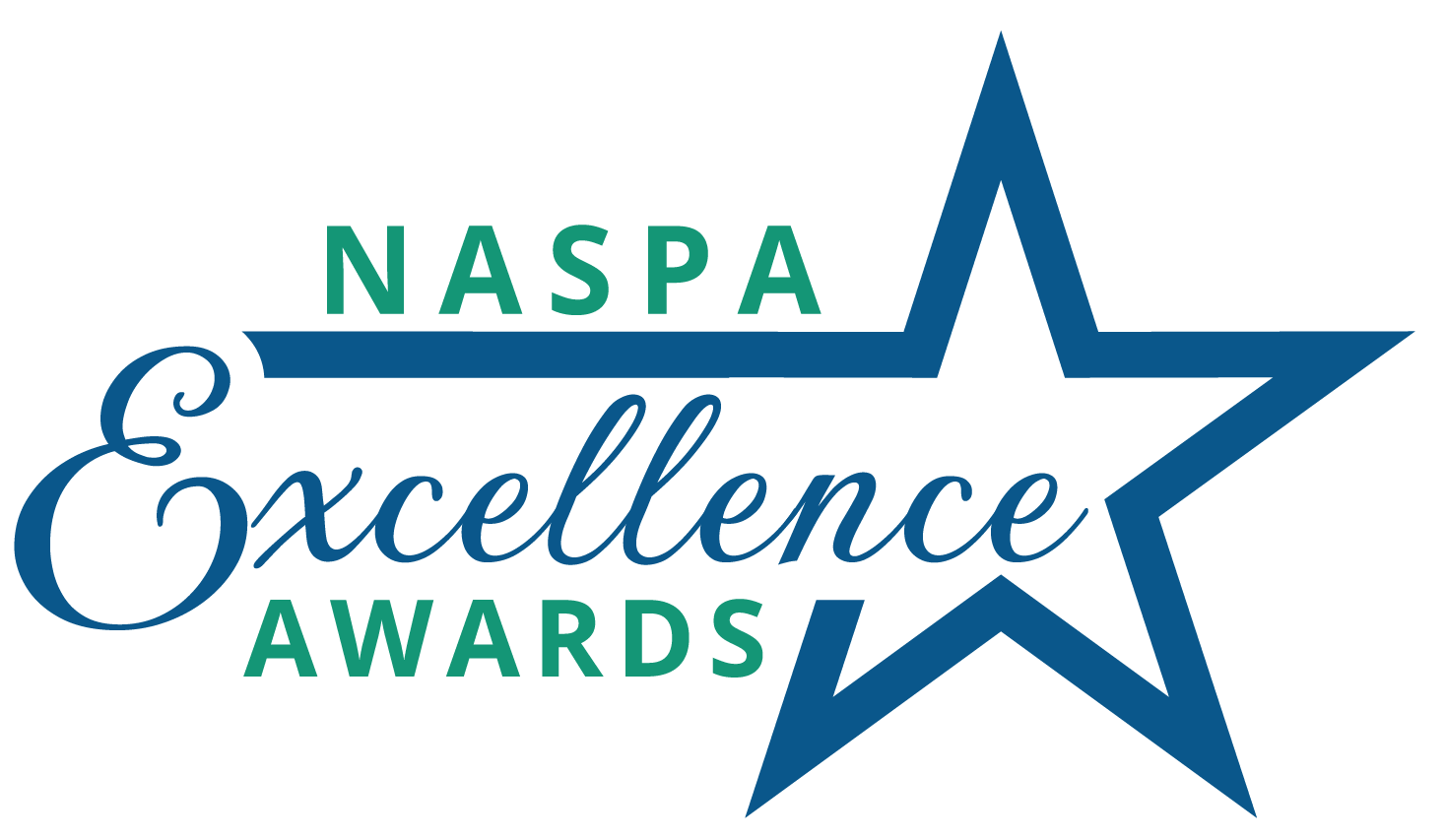
-
You must log in to register
- Member - Free!
- More Information
